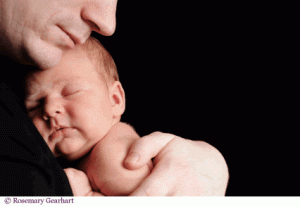Published: August 17, 2010
From the Big Thinks Dangerous Ideas,Max Miller contests Parents don’t matter
 Parents don’t have as much impact on their kids as they think. Yet the amount of time parents, especially moms, spend with their kids has risen dramatically. This would make sense if kids were providing their parents with commensurate increases in joy, but the sad fact is that kids don’t make us happier. In fact, a study by sociologist Robin Simon from Wake Forest says that parents are, across the board, more depressed than non-parents.
Parents don’t have as much impact on their kids as they think. Yet the amount of time parents, especially moms, spend with their kids has risen dramatically. This would make sense if kids were providing their parents with commensurate increases in joy, but the sad fact is that kids don’t make us happier. In fact, a study by sociologist Robin Simon from Wake Forest says that parents are, across the board, more depressed than non-parents.
Parents need to take a step back and reconsider their priorities. So-called helicopter moms are sacrificing friendships, communities, and even marriages to hyper-manage their children’s lives, says sociologist Margaret Nelson from Middlebury College. And while some studies say helicopter parenting can lead to neurotic kids, Nelson is worried less about the kids and more about the mothers’ sanity link to article
Source: Big Think
Published: August 12, 2010
 Sons who have fond childhood memories of their fathers are more likely to be emotionally stable in the face of day-to-day stresses, according to psychologists who studied hundreds of adults of all ages.
Sons who have fond childhood memories of their fathers are more likely to be emotionally stable in the face of day-to-day stresses, according to psychologists who studied hundreds of adults of all ages.
Psychology professor Melanie Mallers, PhD, of California State University-Fullerton presented the findings Thursday at the 118th Annual Convention of the American Psychological Association.
“Most studies on parenting focus on the relationship with the mother. But, as our study shows, fathers do play a unique and important role in the mental health of their children much later in life,” Mallers said during a symposium focusing on social relationships and well-being. [continue reading…]
Tolstoy wrote that every unhappy family is unhappy in its own way, and a new study in the August 2010 issue of the Journal of Marriage and Family finds significant national differences in the degree of conflict between older parents and their adult children.

istockphoto
“Given that family life has its basis in the tension between the desire for autonomy and the need for interdependence, it is not surprising that intergenerational relations—throughout the family life cycle—are among the most ambivalent of social relationships,” said Merril Silverstein, USC professor of gerontology and sociology, and lead author of the study.
[continue reading…]
Time Magazine takes a look at parenting and what our kids choose not to share with us.
Most parents, if we’re honest, can spot our own fingerprints at our children’s crime scenes. When Ethan lies about handing in his homework, when Emma sneaks her phone for late-night texting, they’re often rebelling against pressures that come at least partly from us. This is not to defend their actions, only to remind us that if we act as if we don’t trust our kids, it may invite them to be less trustworthy. Most of us were probably less than immaculately honest as teenagers; it’s practically encoded into adolescence that you savor your secrets, dress in disguise, carve out some space for experiments and accidents and all the combustible lab work of becoming who you are.
Read more
Source: Time
We’d love to hear what you think.
 Parents don’t have as much impact on their kids as they think. Yet the amount of time parents, especially moms, spend with their kids has risen dramatically. This would make sense if kids were providing their parents with commensurate increases in joy, but the sad fact is that kids don’t make us happier. In fact, a study by sociologist Robin Simon from Wake Forest says that parents are, across the board, more depressed than non-parents.
Parents don’t have as much impact on their kids as they think. Yet the amount of time parents, especially moms, spend with their kids has risen dramatically. This would make sense if kids were providing their parents with commensurate increases in joy, but the sad fact is that kids don’t make us happier. In fact, a study by sociologist Robin Simon from Wake Forest says that parents are, across the board, more depressed than non-parents.

